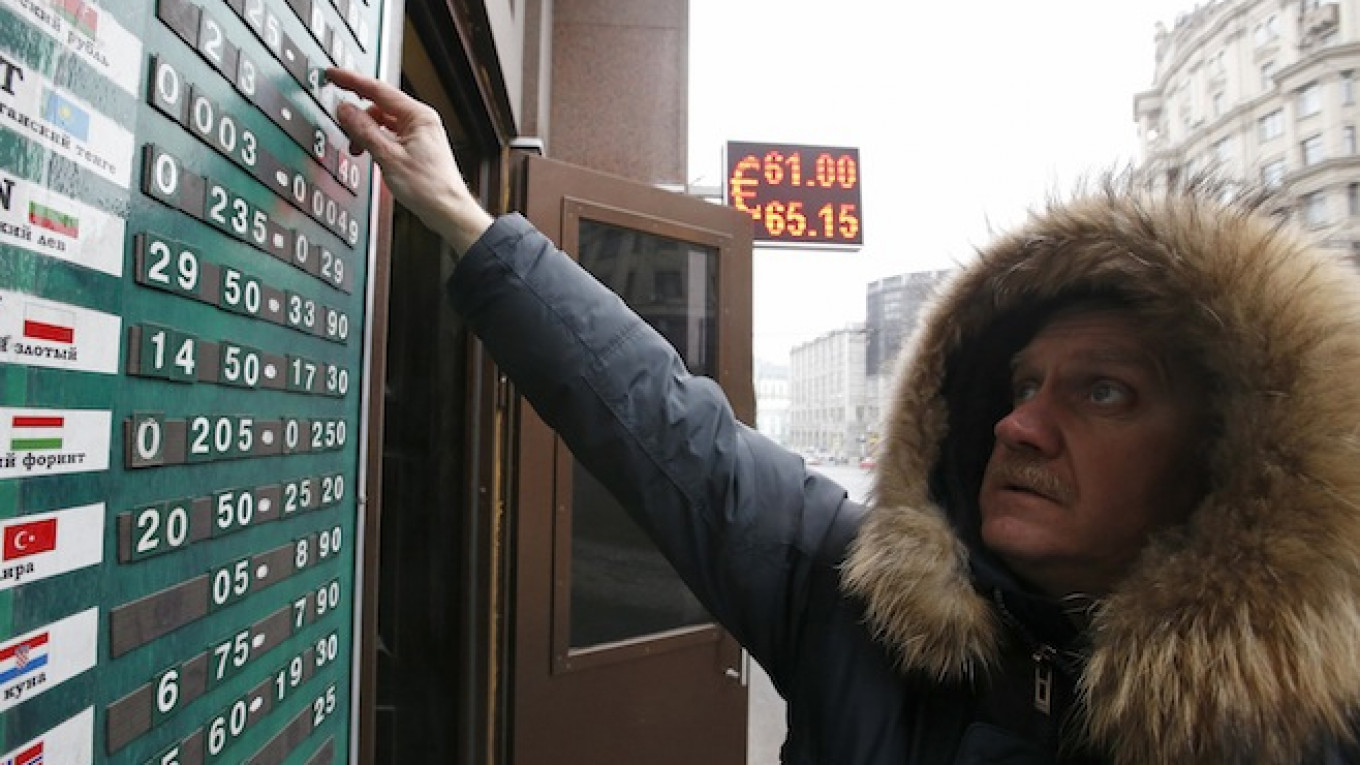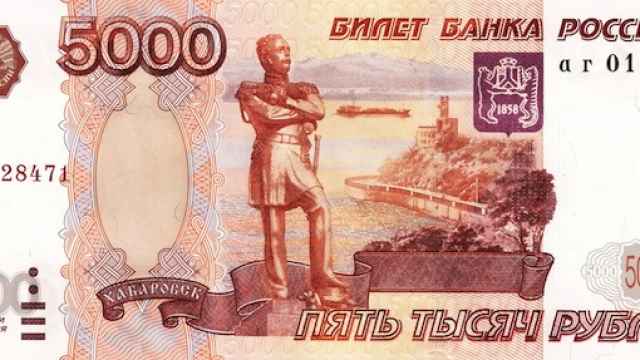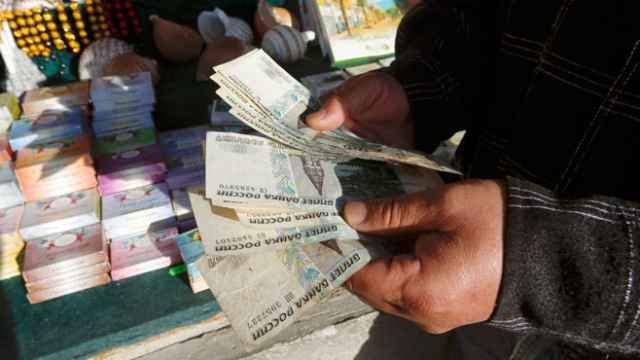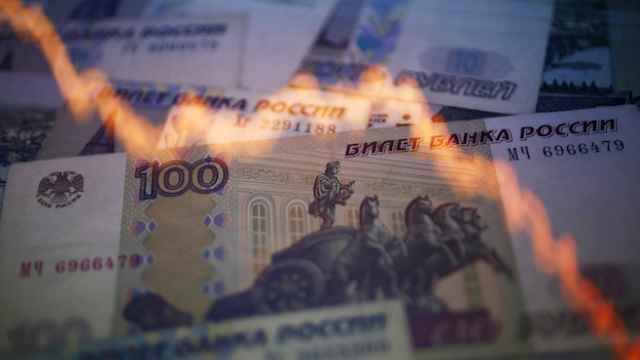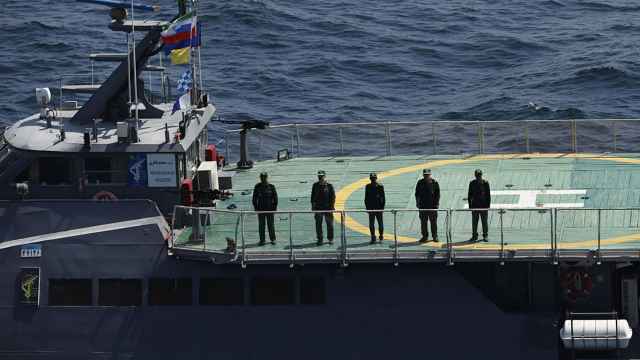A rebound in oil prices and possible Central Bank intervention on Monday saved Russia's ruble from what was shaping up to be its biggest single-day fall since the 1998 crisis.
By 11 p.m., the ruble was 2 percent weaker against the U.S. dollar and the euro, trading at 51.45 to the greenback and 64.8 versus the European currency.
The ruble had lost about 6 percent during the session against both currencies, hitting lows of 53.95 against the dollar and an all-time record of 67.30 against the euro, as oil slid below $70 a barrel — a big blow for the world's No. 2 oil exporter.
Oil benchmark Brent futures hovered just above a five-year low, at around $70 per barrel, weighed down by weak manufacturing data from China and last week's decision by OPEC not to cut oil production to support prices, before bouncing back 3 percent late in the day to just above $72.
OPEC's shock decision means markets are increasingly pricing in the likelihood of cheap oil for an extended period, causing a fundamental reassessment of Russian asset prices, analysts said.
Oil and gas account for about two thirds of Russia's exports and half of federal budget revenues, making its economy and asset prices heavily dependent on global energy prices.
Traders said the ruble's relatively sudden rally in the afternoon, before oil's rebound, pointed to Central Bank intervention. The Central Bank declined to comment.
"The Central Bank is definitely in the market," said one trader at a major Western bank in Moscow.
A financial market manager at a large Russian bank said, "What is now happening — this is the Central Bank [selling forex], judging by how sales are on the exchange."
The Central Bank has not intervened in the foreign exchange market since it floated the ruble on Nov. 10, saying it would do so only if it considered the ruble's fall a threat to financial stability.
"Well, let's see if the current collapse of the ruble is considered such a threat," Profit investment house head analyst, Gleb Zadoya, said in a morning note.
The ruble crashed through the psychologically significant, and until recently unthinkable, level of 50 against the dollar on Friday, bringing its losses since mid-year to 35 percent.
"Support for the ruble at present can only come from stabilization of the oil price. Other factors now look secondary and of little significance," Globex Bank senior trader Igor Zelentsov said in a note.
Standard Bank analyst Tim Ash said in a note that he was surprised by the lack of Central Bank intervention since its decision to float the ruble last month.
"Logically one only has to conclude that the weaker ruble is part of the Russian authorities' policy responses to lower oil prices and sanctions [over Ukraine] as it helps prop up growth and helps keep the budget on track by boosting the ruble value of dollar oil revenues," he said.
The plunging ruble had mixed implications for Russian stock indexes, hurting the dollar-based RTS but boosting the ruble-based MICEX, a pattern that has been become familiar over recent weeks as the falling ruble takes centre stage.
The RTS finished down 1.6 percent at 958 points, having touched a five-year low of 930. In contrast the ruble-based MICEX was up 3 percent at 1,578 points.
A Message from The Moscow Times:
Dear readers,
We are facing unprecedented challenges. Russia's Prosecutor General's Office has designated The Moscow Times as an "undesirable" organization, criminalizing our work and putting our staff at risk of prosecution. This follows our earlier unjust labeling as a "foreign agent."
These actions are direct attempts to silence independent journalism in Russia. The authorities claim our work "discredits the decisions of the Russian leadership." We see things differently: we strive to provide accurate, unbiased reporting on Russia.
We, the journalists of The Moscow Times, refuse to be silenced. But to continue our work, we need your help.
Your support, no matter how small, makes a world of difference. If you can, please support us monthly starting from just $2. It's quick to set up, and every contribution makes a significant impact.
By supporting The Moscow Times, you're defending open, independent journalism in the face of repression. Thank you for standing with us.
Remind me later.


